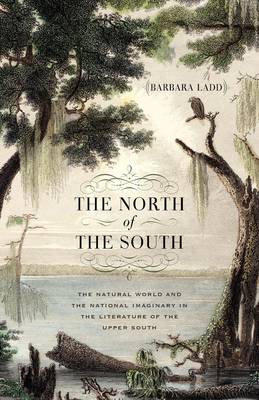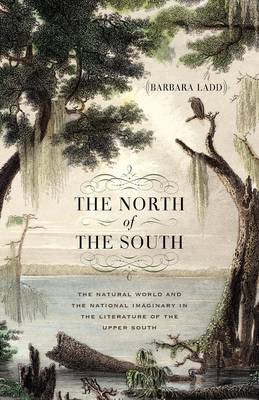
- Retrait gratuit dans votre magasin Club
- 7.000.000 titres dans notre catalogue
- Payer en toute sécurité
- Toujours un magasin près de chez vous
- Retrait gratuit dans votre magasin Club
- 7.000.0000 titres dans notre catalogue
- Payer en toute sécurité
- Toujours un magasin près de chez vous
The North of the South
The Natural World and the National Imaginary in the Literature of the Upper South
Barbara Ladd
33,95 €
+ 67 points
Format
Description
Over the past generation the Deep South has become the primary focus, and the plantation the predominant site, in southern literary studies. These developments followed academic interest first in postcolonial studies and more recently in globalization studies and conceptions of the Global South.
With The North of the South Barbara Ladd turns her attention to the Upper South, exploring the fluidity of regional boundaries in this part of the world. In so doing she argues for greater attention to the impact of its distinctive ecosystems on its literature and points out the complex ways the Upper South's cultural and natural histories are foundational for our national imaginary. Surprisingly, it is Edgar Allan Poe who anchors this study. No longer American literary nationalism's most famous misfit, here he is shown to be remarkably attentive to both the natural and the nationalizing world around him, to have engaged deeply and critically with the environmental and the nationalist vision of Thomas Jefferson. Poe left a legacy of national melancholy around questions of American origins and possible futures discernible in the Souths of Elizabeth Madox Roberts, Cormac McCarthy, and Toni Morrison. In her examination of these cultural aspects of the Upper South, Ladd plumbs the depths of Poe's influence on southern literary studies.Spécifications
Parties prenantes
- Auteur(s) :
- Editeur:
Contenu
- Nombre de pages :
- 96
- Langue:
- Anglais
- Collection :
Caractéristiques
- EAN:
- 9780820362526
- Date de parution :
- 01-10-22
- Format:
- Livre broché
- Format numérique:
- Trade paperback (VS)
- Dimensions :
- 140 mm x 216 mm
- Poids :
- 104 g

Les avis
Nous publions uniquement les avis qui respectent les conditions requises. Consultez nos conditions pour les avis.






